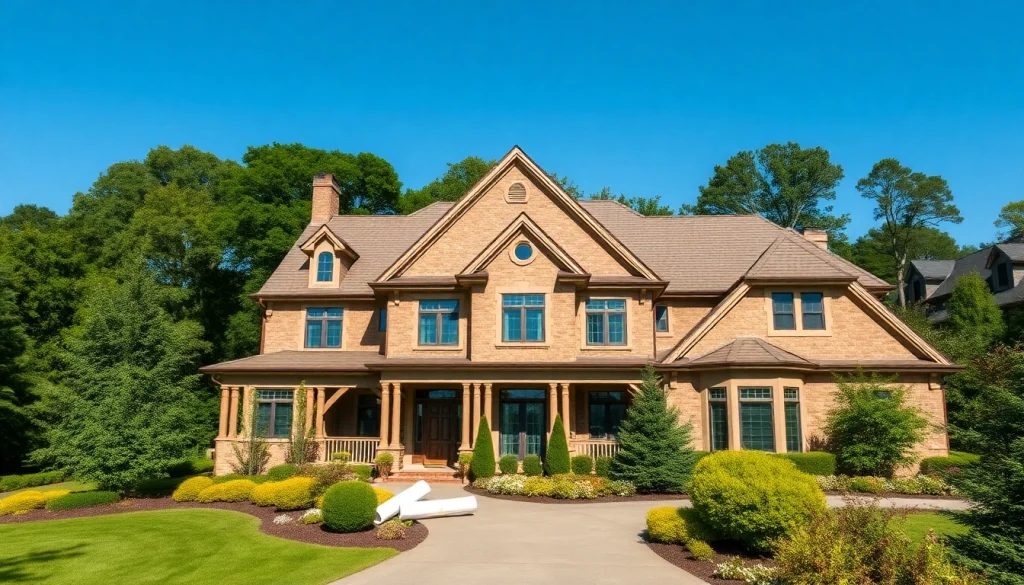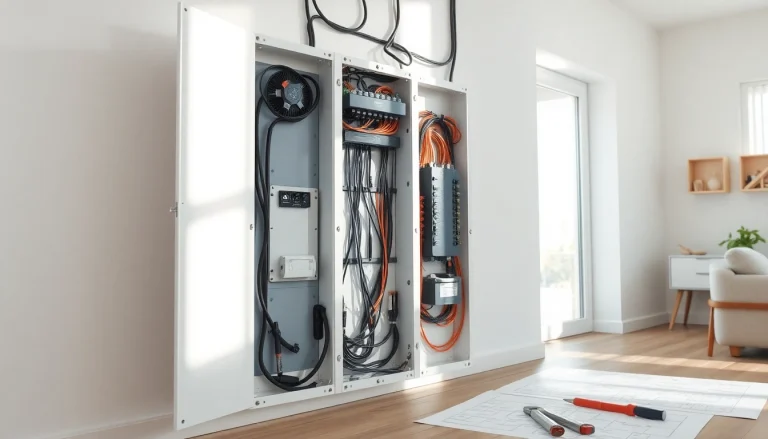
Understanding Connecticut Home Builders
When it comes to constructing a new home, connecticut home builders play a crucial role in transforming your dreams into reality. Whether it’s a custom-built mansion or a cozy single-family residence, understanding the landscape of home builders in Connecticut is essential for prospective homeowners. This comprehensive guide aims to provide you with the knowledge you need to navigate the home building process effectively.
What Defines a Home Builder?
A home builder, at its core, is a professional or company responsible for the construction of homes. Builders may take on various tasks, including the design, planning, and construction phases. To qualify as a reputable builder, they must possess adequate experience, skills in project management, and familiarity with local regulations. Additionally, successful builders often excel in client communication, ensuring that they meet the unique needs and preferences of each homeowner.
Types of Home Builders in Connecticut
Connecticut is home to a diverse array of builders specializing in various types of construction. The primary categories include:
- Custom Home Builders: These builders focus on constructing unique homes tailored to the specific desires of their clients. They often work closely with homeowners from the initial design concept to the final walkthrough.
- Production Builders: These builders create homes in large developments, often offering a limited selection of designs and finishes. While production builders can be cost-effective, they may not provide the same level of customization as their custom counterparts.
- Modular Home Builders: Modular builders construct homes using pre-fabricated sections that are assembled on-site. This method can significantly reduce construction time while maintaining high-quality standards.
Choosing Between Custom Builders and Production Builders
The fundamental decision for prospective homeowners lies between choosing a custom builder and a production builder. Custom builders offer bespoke solutions that cater to individual tastes, potentially resulting in a more satisfying final product. While you may invest more time and financial resources with a custom builder, the advantages include flexibility in design and home orientation.
On the other hand, production builders tend to offer more affordable options, particularly for first-time homebuyers. If budget constraints are a priority, but home personalization is still desired, many production builders provide a variety of floor plans and finishes to choose from, allowing some degree of customizability.
Key Factors to Consider When Hiring Connecticut Home Builders
Experience and Reputation
One of the most significant factors when selecting a builder is their experience and reputation within the community. Look for builders with a solid track record of completed projects reminiscent of your vision. Industry accolades, participation in local builder associations, and positive local reviews are indicators of a reputable builder. It’s also wise to ask for references and photographs of finished projects to gauge the quality of their work.
Licensing and Insurance
Connecticut law requires that home builders possess proper licensing and insurance. Always ask potential builders for proof of their licenses and insurance policies, including liability and workers’ compensation. This ensures protection against any potential accidents or mishaps on-site.
Client Reviews and Testimonials
Client reviews are invaluable resources in determining a builder’s capability. Reviewing testimonials can provide insights into the builder’s communication style, problem-solving abilities, and overall satisfaction rates. Reputable builders often showcase these reviews on their websites, but don’t hesitate to check independent sites to gather unbiased opinions.
The Home Building Process in Connecticut
Initial Consultation and Design
The home building process begins with an initial consultation. During this phase, homeowners should express their ideas, budget constraints, and specific preferences to the builder. This open dialogue ensures that both parties are aligned from the beginning. Following this, builders will often provide design drafts that incorporate the homeowner’s vision while adhering to building codes and zoning laws.
Planning and Permits
Gaining the necessary permissions is one of the most critical steps in the home building process. Builders typically assist homeowners in navigating various permit requirements, which can include zoning permissions and environmental assessments. Engaging an experienced builder familiar with local regulations can expedite this process significantly.
Construction and Project Management
Once all permits are acquired, the construction phase begins. A proficient builder will manage the entire project on-site, coordinating tradesmen, scheduling inspections, and ensuring that work is completed to specifications. Clear communication with the homeowner is vital throughout this phase to address any adjustments or issues as they arise.
Common Challenges with Home Builders in Connecticut
Budget Overruns
One of the most significant challenges in home building is sticking to the original budget. Homeowners must work closely with their builders to establish detailed budgets and maintain open lines of communication about potential changes and costs. Establishing a contingency fund for unexpected expenses can also mitigate financial strain.
Delays in Construction
Delays can occur for various reasons, including weather conditions, supply chain issues, or unanticipated site conditions. Builders should provide clear timelines and regular updates to minimize homeowner anxiety. Additionally, having a dedicated project manager can help maintain momentum and accountability.
Finding Quality Materials
The quality of materials chosen for your home significantly impacts both longevity and aesthetics. Builders typically have established relationships with suppliers, allowing them to source materials at competitive rates while ensuring high quality. Homeowners should be involved in material selection to ensure that what is chosen aligns with their preferences and budget.
Maximizing Your Home Building Experience
Effective Communication with Your Builder
Effective communication is crucial throughout the building process. Scheduling regular check-ins, encouraging feedback, and discussing concerns can help prevent misunderstandings. Establishing a preferred method of communication, whether through in-person meetings, email, or phone calls, can streamline interactions and ensure that both parties remain informed.
Regular Site Visits and Inspections
Homeowners should feel empowered to conduct regular site visits. Observing the construction progress provides an understanding of ongoing work and may reveal areas of concern before they escalate. This engagement fosters a collaborative environment between the homeowner and builder.
Post-Construction Support and Warranties
After construction is complete, a reputable builder will provide support for any post-construction issues that might arise. Understanding the warranty offered on materials and workmanship can also assure homeowners that their investment is protected long-term. This follow-up support is an essential part of the overall home building experience.





